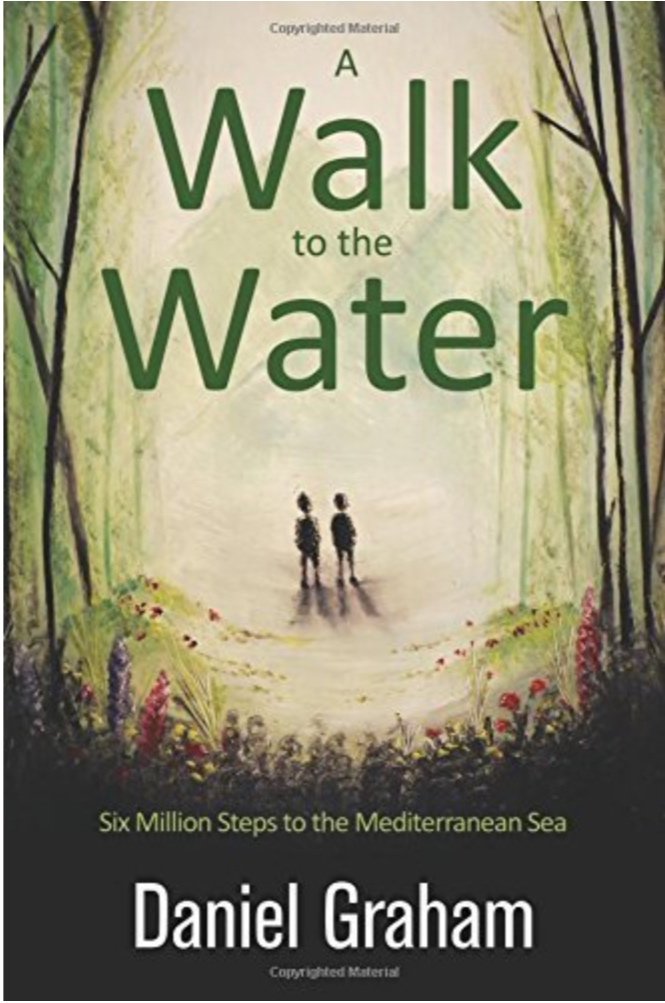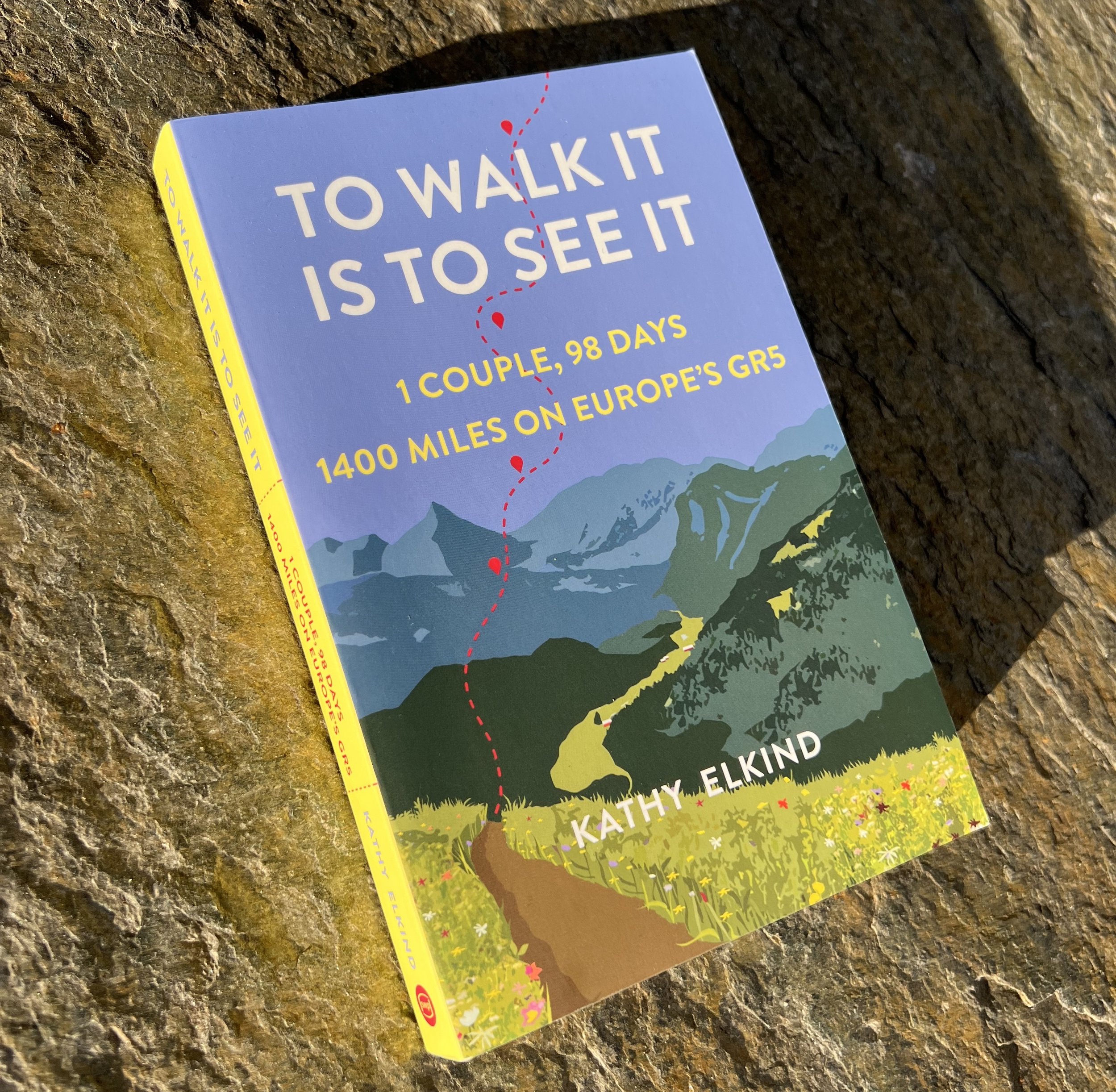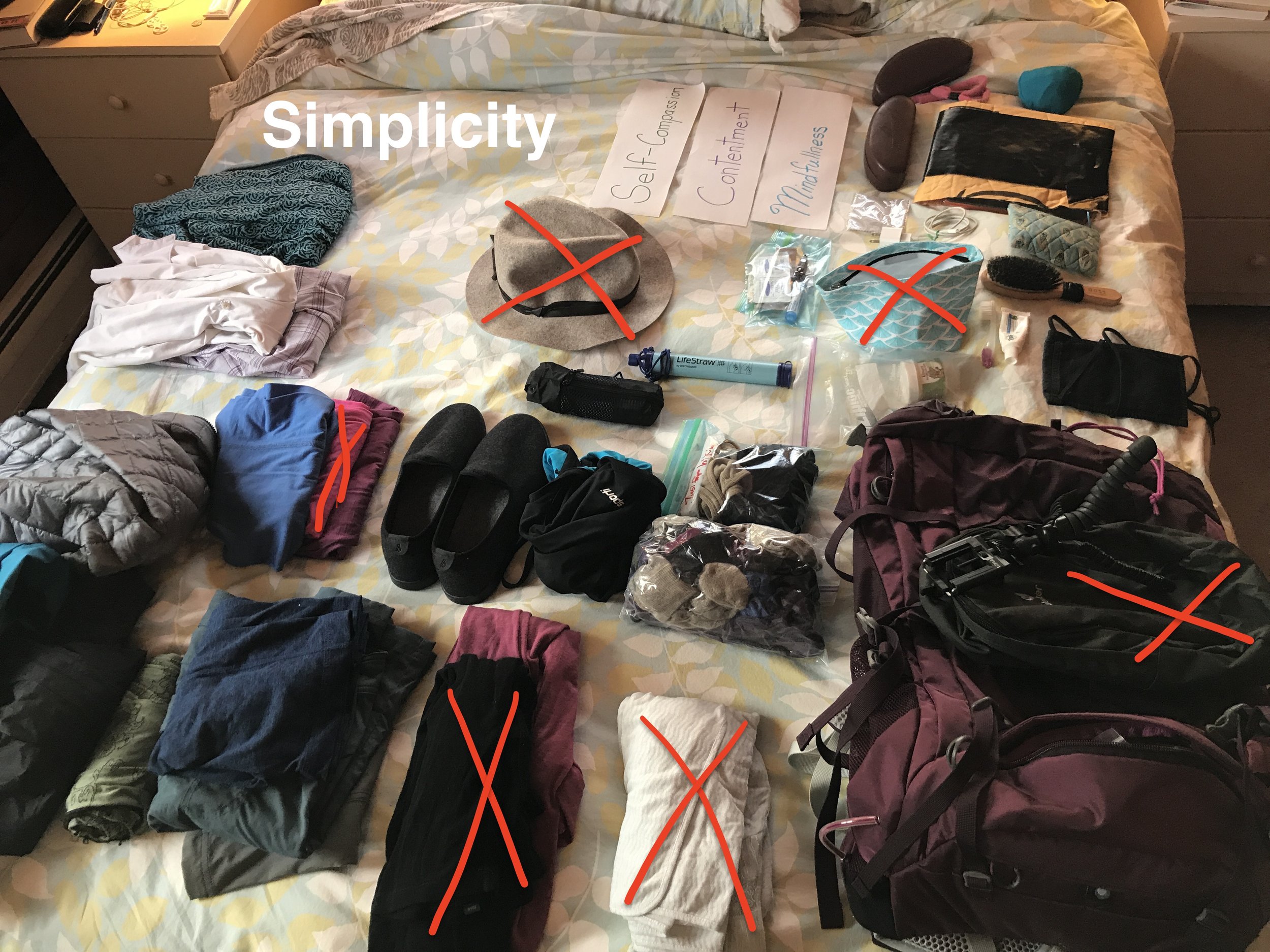How to Plan for a Long Distance Walk in Europe
Helpful resources to plan a long distance walking Adventure in Europe.
It takes a lot of homework to plan a long distance walking adventure in Europe but it is FUN. And after you have done it the first time it gets easier.
While planning don’t forget to use self-compassion and mindfulness, especially if you are planning with a partner. And then pack these important tools with you.
Here are a list of helpful websites and suggestions. Happy Planning.
Please email me if you have specific questions.
1) Check out this website for amazing walking and cycling guidebooks. This is my number one place to get ideas.
2) If you are looking for more ideas, check out this website
E-Path- European Ramblers Association
3) Resources for the GR5
4) We use GAIA GPS but there are many other apps.
5) There are three videos on my website about other walks we have done.
Souther Spain Andalusian Coast to Coast
Apennines in Southern Italy, just east of Rome (I don’t suggest this one for your first walk.)
There are more blogs below that will help with the planning.
Here is What We Carried.
Here is What to Read before Walking the GR5
Enjoy the journey of finding the best walk for you.
Happy Walking,
What to Read Before Walking the GR5
These are the books and guidebooks I read before walking the 1400 miles on Europe’s GR5 and then writing my memoir about the GR5.
For two and half months I read everything I could find about the GR5. I like to know what I’m getting myself into and this was my first long distance walking adventure, so I did my homework.
Here are the books and guidebooks I read.
Walking Europe From Top to Bottom by Susanna Margolis and Ginger Harmon (published 1986)
This is a Sierra Club Travel Guide. It was published in 1986. It is not in print any longer, but I found a used copy on Amazon. The trail has changed over the years, but the best part of this book is that the authors divide the route into eleven sections, and they have a map and a table of each stage and how long the stage is in kilometers and hours of each section. I found this so helpful that I took a photo of each map and table and kept them in my phone for reference as we walked and left the heavy book at home.
A Walk to the Water by Daniel Graham (published 2015)
This is a memoir about walking the E2 (GR5) (It’s called the GR5 when it is on the continent.) In 2013 the author and his brother walked from their home (front doorstep) in Bristol, England along the E2 until they got to the English Channel where they took a ferry to The Netherlands and began the GR5. They ‘wild camped’ most of the way and were on a tight budget.
A Long Walk South By Sean Rothery (published 2014)
A 65-year-old Irishman walks the GR5 after retiring as an architect. He reflects on life and earlier travels mountain climbing in the Alps.
Mountain Lines by Jonathan Arlan (published 2017)
Mountain Lines is a memoir about walking the Alps part of the GR5 or as it is sometimes called the Grand Travers. Arlan was a twenty-nine-year-old amateur hiker, but he persisted. The memoir is well written and fun to read. I read this book once before we walked, and I read it again on my kindle as we walked in the Alps.
Cover of the book, Mountain Lines by Jonathan Arlan
Guidebooks
There are three guidebooks published by Cicerone that cover the whole GR5.
The first covers the Northern part, from Hoek van Holland to the beginning of the Voges (The Neatherlands, Belgium, Luxembourg and Lorraine, France). This one was not published when we walked. But I did read Carroll Dorgan’s blog and I emailed with him to gather more info. He was very helpful. Now you can read it all in this guidebook.
Cover of the Guidebook, The GR5 Trail Benelux and Lorraine, by Carroll Dorgan
The middle one covers the Voges and the Jura. It takes about a month to walk the Voges and the Jura. If you only have a short time to walk and you want to walk in a relatively unknown part of France, I suggest the Jura or the Voges.
Cover of the guidebook, The GR5 Trail Vosges and Jura by Les and Elizabeth Smith
Finally, the guidebook below covers the Alps which can be walked in about five or six weeks. Another name for this is the Grand Travers.
Cover of the Guidebook, The GR5 Trail by Paddy Dillon
All the guidebooks are organized roughly the same way. Table of Contents, Mountain Safety, Map Key, Overview Map, Schematic route profile, Route Summary Table, Introduction, History of the Region, When to Go, Flower, animals and birds, How Hard is It? How Long Will It Take? Accommodations, Planning your walk, What to Take, Finding Your Way, and Using This Guide.
The majority of the guidebook is divided into “Stages”. Each day is a stage. Each stage is four to six pages long and itself is divided into parts: the overview, the map, the altitude profile, photos, and short description of the town/village at the end of the stage.
Check them all out at Cicerone. And if you have an questions don’t hesitate to reach out by email. I’m happy to help.
We had the guidebooks in e-book format on our phones.
And now you can read my memoir about the GR5
Available where ever you buy books, in ebook, audiobook and paperback.
Happy reading and walking!
What We Carried
Walking on the GR5 in the Jura in Eastern France. What we carried.
Packing List for the GR5 and other walks in Europe
The one question I always get asked at book events: What did you bring with you?
I use a 36-liter Osprey pack. Jim uses a 45-liter Black Dimond. (But he does not fill it to capacity.)
Hiking boots
Hiking shorts
Hiking pants (Jim uses zip on/off)
Short sleeve hiking shirt
Long sleeve sun shirt for hiking- 2
Sun hat, wide brim
Good rain jacket – with pit zips
Rain pants
Puffy jacket - not down - light weight
Wind breaker – light weight. We did not have this on the GR5 but have each brought one on our last two long walks.
Warm wool hat – light weight
Gloves - light weight
Underpants - 3
2 Bra - for hiking
Bra- not for hiking
Bathing suit
Long underwear bottoms - light or med weight- I use leggings.
Long underwear top
Hiking Socks 3 pair
Sock liners 2 pair
Evening Wear
Nice Shirt for not hiking
Pants and/or a skirt for not hiking. I use a skirt and the leggings.
Sweater or warm layer for not hiking (I have this but I could get by just wearing my puffy)
One pair of socks for not hiking
Flip flops, or Allbirds wool slip-on, or Crocs for not hiking (I use Allbirds wool slip-on flats)
T-kit
Toothbrush,
Jim and I share one small tube of toothpaste
Small Brush with 2 hair elastics on the handle
Small shampoo used for washing clothes too.
Sunscreen and lip balm
Bug stuff for ticks ( not sure we have to worry about ticks in the Alps)
Ear plugs
Very small first-aid kit
Band-Aids, anti-biotic cream, moleskin, Pepto Bismol tablets, aspirin, Advil, nail clippers,
Compeeds for blisters.
Travel wallet
Passport, ID, money, credit card, health card, (all in a very small travel purse) Take photos of all to have in case wallet is stolen.
Other Gear
Sunglasses
Extra pair of prescription glasses for me
Chums
Phone charger and adapter
Phone
I Pad, with case
Ear buds
Pen and 1 piece paper
Knife
Spork
Head lamp
emergency food bars-3
emergency Space blanket
Backpacking towel
Silk Sleeping sheet
Pack cover
Small bag of trail mix not for emergency
What I packed for the GR5 in 2018. The red “x” indicate I did not end up bringing or I discarded along the way.
Everything in waterproof stuff sacks -6
I used 2-liter bladder, now I use a 3-liter bladder.
I also carry a water bottle and a “life straw”. I can drink through the straw water that needs to be treated. Jim carries tablets. We did not need to worry about treating water in the Alps because there are places to get water.
Set of trekking poles if you use them. They along with knife need to be checked. We have a lightweight duffle that compresses to very small, which Jim carries.
Guidebooks all on our phones. GIAI GPS.
***************
We have found having a small cloth grocery bag helpful for shopping. And a string backpack (like the one that soccer players use) for walking around the city/town if you don’t want to carry your whole pack.
Jim carried a battery pack, which we used once.
Fall of 2022 getting ready to walk in Southern Italy.
Notice how much my backpack has faded from three long walks over five years. Also we carry covid tests and masks now.
Happy packing. For me packing is almost as fun as the walking. Anticipation …………..
To learn more about our travels buy the book
Available in e-book, audiobook, and paperback
















